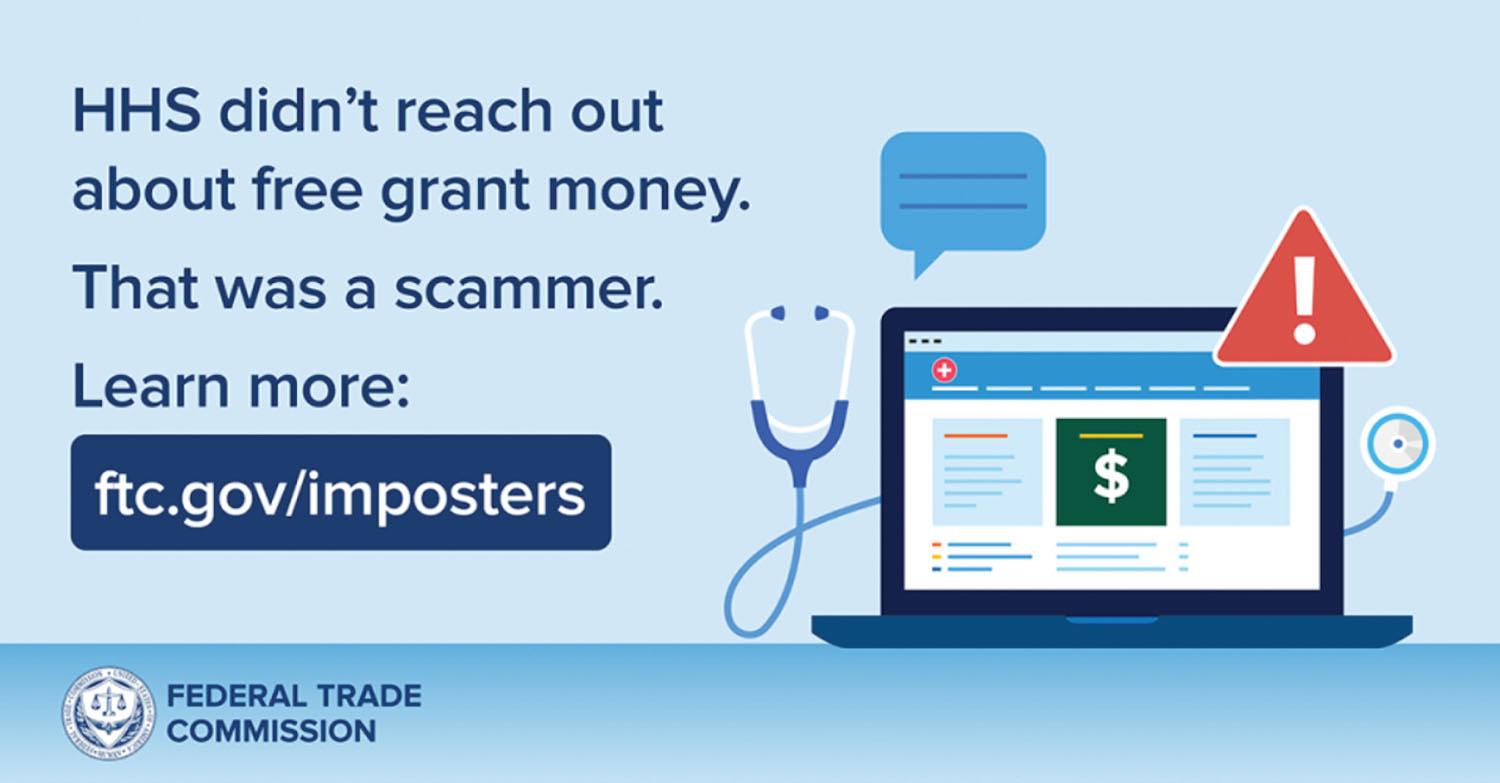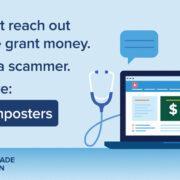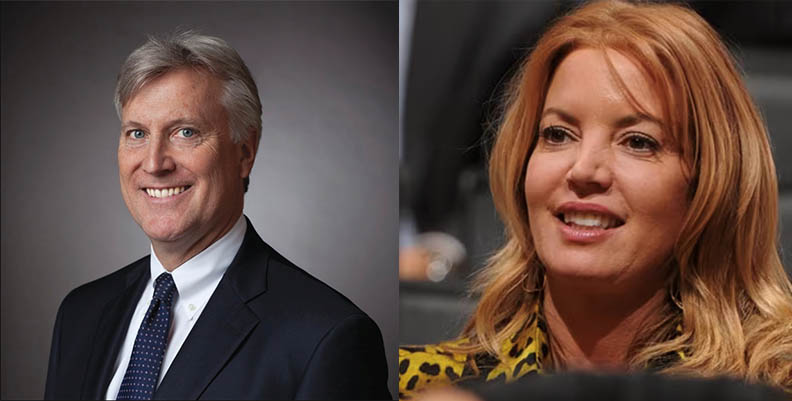
DID you get a message from a friend on social media about a U.S. Department of Health and Human Services (HHS) grant opportunity? Or from someone saying they were an HHS employee? Well…they weren’t who they said they were. They were scammers.
This new twist on the age-old government grant scam often goes like this: someone reaches out to you through social media, email, or a chat app and says you qualify for free grant money from HHS. They’ll direct you to a fake HHS website or online chat that seems legitimate — but it’s not. Then they’ll try to get your payment information or other personal details “to process” the grant.
If you get a message like this:
- Know that HHS (and other government agencies) won’t get in touch out of the blue about grants. They won’t reach out through social media, call, text, or email you about government grants. Real government grants require an application, and they’re always for a specific purpose. Learn more (for free) at grants.gov.
- Don’t pay to get a grant. HHS won’t make you pay to get a grant — or insist that you use cash, a gift card, a wire transfer through a company like Western Union or MoneyGram, or cryptocurrency.
- Check for a .gov domain. HHS websites always have .gov in the URL. If you’re directed to an HHS-looking website with .org, .com, or .us, it’s fake — even if it has the HHS logo on it.
- Never share your financial or personal information with anyone who contacts you. HHS and other government agencies won’t call, text, message you on social media, or email to ask for your Social Security, bank account, or credit card number. Only scammers do that.
Have you gotten a message or call about a fake HHS grant? Report it to the Federal Trade Commission at ReportFraud.ftc.gov.
(Kira Brown/Consumer Education Specialist, FTC)






